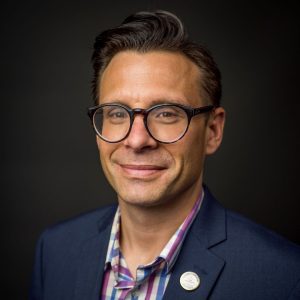Young American adults are eschewing marriage at alarming rates. A recent report in World included this Census Bureau generated data: only 25% of adults ages 18-34 are married out of more than 126 million people. There are 17 million unmarried adults cohabiting with a significant other—up 6 million from 20 years ago. Few adults ages 18-29 are even interested in dating (36% of women; 52% of men), much less marriage.
Why are so many younger adults not interested in marriage? Several reasons include: failure to observe models of healthy marriage during their upbringing (thanks to the high divorce rate among my generation); changing gender-behavior expectations drain relational confidence (more often among men); acceptance of cohabitation as a morally acceptable lifestyle alternative; cultural pressures to prioritize other life goals (career, financial security, etc.); over establishing a family; and economic pressures which make creating a family difficult (home purchase, child-bearing and child-rearing expense, etc.). These are just a few of the reasons sociologists have identified.
There is one additional reason that is not often mentioned. We have systematically devalued marriage in American culture—in my generation by changing divorce laws to make it so easy to end a marriage and, in this generation, by redefining marriage to include same-sex and other alternative lifestyle arrangements. The current generation is simply following the lead of their cultural leaders who continually devalue marriage.
When legalizing same-sex marriage was being debated, proponents claimed it elevated marriage by making it available (and a desirable standard) for more people. That was a high-sounding argument to gain support, but it was a false narrative. Redefining something this important, particularly in ways that contradict standards shared by every major religion and most developed societies anywhere in the world, actually devalued marriage by gutting its meaning. Marriage is about companionship, procreation, and relational stability—for the couple, their children, and society as a whole. New definitions do not meet these high standards, thus devaluing the entire institution.
We have sown the wind, we are now reaping the whirlwind. We have chosen to redefine and devalue marriage, making it less desirable to initiate and more daunting to experience in its fullness. As Christians, who still value marriage, we have a responsibility to advocate for marriage and teach young adults the importance of, value in, and growth (spiritual and personal) that results from a healthy marriage. Through marriage, God does his most important work of procreation, creating community, and shaping character. While the culture around us continues to degenerate in confusion on this matter, churches must be islands of marital-sanity, promoting marriage and teaching people how to experience God’s best in this high and holy institution.
Read More

Hope in Suffering
Gateway student Matt Bodden is an evangelist who is ready to answer the question of suffering with the gospel.

The Gateway Journal of Theology Inaugural Issue
Read all new articles in the inaugural issue of The Gateway Journal of Theology.
Listen
Prophets | Daniel Part 2
Now with the historical portion of Daniel done, Dr. Wegner takes us through the visions of beasts and years. All these figures intending to show us something. What does it all tell us about God?

Theology and Missiology with Dr. Peter Lillback
Rev. Dr. Peter Lillback, president of Westminster Theological Seminary, PA, and founder of The Providence Forum, joins Dr. Hopkins to chat about the inclusion of young children during the main services in church, the religion and theology of George Washington, and the

Watch

Jonathan Edwards and the Asbury Revival
Chris Chun and Chris Woznicki discuss the signs of true revival, signs of the work of the Holy Spirit, and why it is important to critically assess the characteristics of revival in a spirit of charity.

Jonathan Edwards and the Baptists | Douglas Sweeney, Nathan Finn and Chris Chun
Dr. Douglas Sweeney and Dr. Nathan Finn joined Dr. Chris Chun for a panel discussion on Jonathan Edwards, recorded live at the SBC Annual Meeting in Anaheim.




